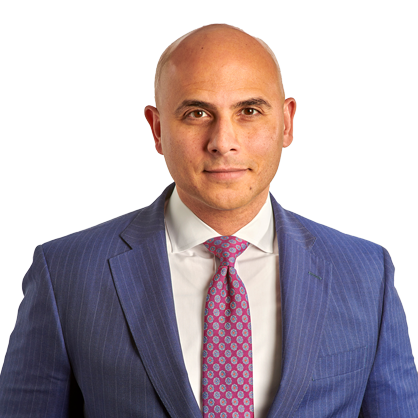Insights
Thought Leadership
White Collar Roundup - March/April Edition
SEC Goes All-in on ESG
The Securities and Exchange Commission (SEC) has signaled in a recent series of announcements its heightened scrutiny of environmental, social and governance (ESG) investment issues. With more investors demanding investment strategies that focus on sustainability and ESG and more investment advisers working to meet that demand, it is no surprise that regulators are not far behind.
The SEC's recent announcements include the creation of a Climate and ESG Task Force in the Division of Enforcement and the issuance of an ESG Risk Alert and the 2021 Examination Priorities from the Division of Examinations. Underlying all three announcements is concern that issuers, investment advisers and funds could find themselves in over their heads in this developing area and making promises to investors that they may be ill-prepared to keep.
The ESG Risk Alert highlights the deficiencies and internal control weaknesses the SEC has observed from examinations of investment advisers and funds regarding ESG investing. Those observations include:
- Practices that are inconsistent with disclosures about ESG approaches. For instance, while some firms told investors they would adhere to certain global ESG frameworks or seek investments in issuers with high ESG scores, their practices differed from what they told investors.
- Controls that are inadequate to meet investors' ESG-related instructions. For example, where investors mandated negative screens (e.g., prohibition of investments in the firearms industry), some advisers had insufficient controls to implement those directives, despite contrary marketing claims.
- Compliance programs that insufficiently address ESG issues. For example, some firms substantially engaged in ESG investing had not implemented procedures to ensure that the firm adhered to its ESG investment strategies, including to support ESG-related claims in their marketing materials.
- Compliance personnel with limited knowledge of ESG investment issues. The SEC observed that firms' controls were less effective where compliance personnel had insufficient understanding of ESG-specific investment issues and risks.
So, what makes for effective ESG-related investing practices? Unsurprisingly:
- Clear and precise disclosures that are tailored to the firm's ESG investing approach.
- Policies and procedures that address ESG investing and cover key aspects of the firm's ESG-related investment practices.
- Compliance personnel who are knowledgeable about and integrated into the firm's ESG-related practices.
The SEC claims its new Climate and ESG Task Force, drawing on information gathered from the Division of Examinations, is initially focused on identifying material gaps or misstatements in issuers' disclosures of climate risks and on analyzing disclosure and compliance issues related to investment advisers' and funds' ESG strategies. The SEC says it also "will develop initiatives to proactively identify ESG-related misconduct" and will use "sophisticated data analysis to mine and assess information across registrants, to identify potential violations."
Precisely how and when the SEC will act on its warnings about policing ESG investment issues remains to be seen. But the message should be loud and clear—to issuers, investment advisers and funds alike—that ESG is top of mind for the SEC.
In (Un)like Flynn: Foreign Agent Conviction Reinstated
In yet another decision reinforcing the criminal consequences for failing to disclose activities on behalf of a foreign government, a federal appeals court reinstated the conviction of a one-time business partner of former National Security Advisor Michael Flynn for acting as an unregistered foreign agent for the Turkish government. In a unanimous panel ruling, the Fourth Circuit Court of Appeals overturned a ruling by the district court that had set aside the conviction of Flynn associate Bijan Rafiekian for acting as a foreign agent and conspiring to violate the Foreign Agents Registration Act. The Appeals Court held that the jury had sufficient evidence to convict Rafiekian for conspiring to influence U.S. public opinion against an exiled Turkish cleric, Fethullah Gulen, at the behest of the Turkish government, which blames Gulen for an attempted coup against the Turkish president, Recep Tayyip Erdogan.
The charges stem from Robert Mueller's investigation into Russian interference in the 2016 U.S. presidential election. Prosecutors alleged that Rafiekian and Flynn sought to delegitimize Gulen in the eyes of U.S. politicians and the U.S. public in order to obtain his extradition to Turkey, all while concealing that the Turkish government was directing and funding their covert actions. The Department of Justice (DOJ) never charged Flynn in the case, and his potential criminal liability was mooted by former President Trump's grant of executive clemency to Flynn last November. Rafiekian, a former member of Trump's transition team, did not have similar good fortune. On April 27, the Fourth Circuit refused to rehear the case en banc. As a result, Rafiekian will be sentenced later this year.
Federal Prosecutions Not Immune from Effects of COVID-19
Travel and dining out weren't the only things to decrease during 2020. A new report from the United States Sentencing Commission (USSC) indicates federal criminal cases also significantly dropped last year. The USSC released its annual Overview of Federal Criminal Cases for fiscal year 2020 this month. Although lawyers and defendants have keenly felt the impact of Covid-19 on federal dockets for more than a year now, the report provides hard numbers confirming the extent to which Covid-19 slowed federal sentencing.
From fiscal year 2019 to fiscal year 2020, there was a 15.6 percent decrease in individual original cases reported, amounting to a whopping 11,973 fewer cases. Still, within the reduced caseload, the four most common categories of crime remained the same: immigration; drugs; firearms; and fraud, theft or embezzlement. One of the most substantial decreases was in the white collar crime category of fraud, theft and embezzlement offenses, which fell by almost a quarter, or 24.5 percent. Even with fewer economic offense cases for the year, the losses remained considerable, averaging $1,427,331 per case, with a median loss of $51,281. The number of federal crimes at an organizational level in 2020 also decreased, with only 94 organizations convicted, mostly for fraud and environmental crimes. While this in part continues what had already been a downward trend stretching back two decades, Covid-19 delays no doubt exacerbated the decrease.
While federal sentencing rates as a whole will evolve this year due to shifting political priorities at the DOJ and the gradual clearing of Covid-19 judiciary backlogs, it is hard to predict the precise impact on sentencing of white collar crimes. As previously discussed here, the Biden administration will likely expand the work of the Consumer Financial Protection Bureau, encourage the SEC to address novel issues like cryptocurrency and look to the newly passed Anti-Money Laundering Act to strengthen the fight against money laundering, especially when used to finance terrorism. The DOJ has also made a concerted effort to target Covid-19-related crimes, including Paycheck Protection Program loan fraud and embezzlement, but it is unclear as of yet how significant an increase such crimes will cause in next year's federal criminal statistics. As a result, although we may finally be turning a corner on Covid-19 rates in the U.S., it will be a long time before the full impact on federal criminal cases is fully known.
OFAC Violations Happen in the Darndest Ways
Many are aware of some basics of U.S. sanctions law; think long and hard before doing business in or with certain rogue nations (e.g., North Korea, Syria) or with people or companies on the Specially Designated Nationals and Blocked Persons (SDN) List. But enforcement cases from the Office of Foreign Assets Control (OFAC) in each of the past three months help show how compliance with sanctions regulations can be much easier said than done.
In the first case, settled in February 2021, an Atlanta-based company that offers merchants a payment platform to process digital currency settled with OFAC after it was discovered that people in the Crimea region of Ukraine, Cuba, North Korea, Iran, Sudan and Syria all used the platform to pay for goods and services. Although the payment processor performed due diligence on and screened its direct counterparties—the merchants—against the SDN List, it did not screen location data that it obtained about the merchants' customers. Specifically, the payment processor had the customers' internet protocol (IP) addresses, which it could have searched to discover the customers' locations.
In March, a Cleveland-based manufacturer settled with OFAC after discovering that two of its European customers had reexported 21 shipments of its air pressure switches to Iran. For 19 of those shipments, the manufacturer did not have direct knowledge that its customers would send the goods to Iran, but it ignored warning signs. For example, one customer rebuffed the manufacturer's offer to ship the product directly to the end user in a way that the manufacturer should have recognized as an effort to obfuscate the end user's identity. Early in the relationship, the manufacturer correctly rejected a customer's offers to exploit the Iranian market for the switches, but then it failed to take steps over the years to ensure that its customer was not reexporting its product to Iran. Nor did the manufacturer take steps to explore why so many Iranian nationals expressed interest in its products at trade conferences over the years.
In April, an Oklahoma-based manufacturer of prefabricated steel structures settled 61 apparent violations of OFAC regulations. The cause? A senior employee had outsourced engineering work to an Iranian engineering company owned by his brother. At least two other senior managers knew of the engagement with the Iranian company, and other senior officials were involved in approving and processing payments to it.
Each of these examples resulted in relatively modest settlements with OFAC, thanks in part to mitigating factors, including the companies' cooperation with OFAC to halt the offending activity, investigate the scope of it and institute compliance reforms. But they serve to identify some compliance measures that could help other companies avoid future headaches: (i) screening counterparty names and addresses is a good start, but screening available IP addresses of end users may be necessary in some instances too; (ii) be alert to and follow up on warning signs that your customer may be transferring your goods into the wrong hands; and (iii) consider who your service providers are and where they are located, regardless (or perhaps even more so in light) of any familial ties to your employees or executives.
FinCEN Takes Ownership of Registry
The government is making good on its promise to increase transparency into the ownership of corporations and limited liability companies (LLCs) in the United States. The rulemaking process has begun for a federal registry of beneficial owners of LLCs, corporations and similar business entities. An advance notice of proposed rulemaking was published by the Treasury Department's Financial Crimes Enforcement Network (FinCEN) on April 5, inviting public comments concerning a proposed rule that would establish a nonpublic government database containing information on the natural persons who own or control certain corporations and LLCs formed under the laws of a U.S. jurisdiction or foreign entities registered to do business in the U.S.
The rules proposed by FinCEN would be the first regulatory action implementing the Corporate Transparency Act (CTA), which was enacted as part of the sprawling National Defense Authorization Act passed by Congress over then-President Trump's veto in January 2021, first profiled here. FinCEN's advance notice explains that the CTA provisions permitting rules that introduce transparency into the beneficial ownership of corporations and LLCs is the "top priority for strengthening the U.S. AML/CFT regime." As Congress explained in the CTA, this is necessary due to the proliferation of "malign actors" exploiting various business entities to facilitate illicit activity with anonymity, including money laundering, financial fraud, foreign corruption and the like.
At this early stage in the rulemaking process, every aspect of the forthcoming beneficial ownership database is in flux, and thus it is difficult to predict the additional regulatory burdens or the benefits to some companies that will result when it is finally implemented. The public questions posed in the advance notice make clear that several fundamental elements of the proposed system are as yet undefined. For example, the government appears to be considering whether to clarify the CTA's definition of "beneficial owner" or generally an individual who owns or controls not less than 25 percent of the ownership interests of an entity. It is also seeking comment on whether to require reporting of an entity's corporate affiliates, parents and subsidiaries and whether the reporting requirements should extend to "similar entities" beyond corporations and LLCs.
This regulatory "churn" is to be expected at this phase of the rulemaking process. In the meantime, principals of U.S. corporations and LLCs may look abroad for some insight on what to expect. The United Kingdom established a beneficial ownership registry in 2016, albeit one that is fully accessible to the public. The European Union has also announced plans to establish its own registry. With this rush toward registries across Europe and the United States, what seems clear— transparent, even— is that corporate owners seeking absolute anonymity will have few places left to hide.
Former Braskem CEO All Washed Up
In a case stemming from the now infamous Operação Lava Jato (Operation Car Wash), the former CEO of Brazil-based petrochemicals company Braskem S.A. pleaded guilty to conspiring to violate both the anti-bribery provisions and the books and records provisions of the Foreign Corrupt Practices Act (FCPA). As part of the plea deal, Jose Carlos Grubisich admitted to bribing Brazilian officials to retain a lucrative contract with the state-owned oil behemoth Petrobras and to falsifying Braskem's books and records by falsely recording payments to offshore shell companies controlled by Braskem. In connection with the scheme, Grubisich also falsely certified Sarbanes-Oxley submissions to the SEC.
Launched in Brazil in 2014, Operation Car Wash began as a money-laundering investigation that quickly developed into a sprawling, multinational inquiry into wide-scale corruption in Brazil and beyond. As the DOJ has described, for many years, Braskem and its parent company, Odebrecht S.A., bribed government officials in various countries in order to keep or secure construction and petrochemical contracts. The bribery scheme was so brazen that Odebrecht created a so-called Division of Structured Operations, which essentially functioned as a bribery department within the company. Braskem, in turn, contributed a quarter of a billion dollars to this off-the-books system and funneled it to Brazilian politicians and parties and an official at Petrobras. Both Odebrecht and Braskem pleaded guilty in 2016 and agreed to pay a combined total of $3.5 billion to resolve charges in the U.S., Brazil and Switzerland.
For his part, Grubisich will be required to make approximately $2.2 million in forfeiture payments as part of his own guilty plea. On the one hand, the plea by the former Braskem head reflects yet another cautionary tale arising out of Operation Car Wash, confirming the long arm of the DOJ in FCPA cases and its reach into the most senior echelons of foreign and domestic companies. On the other, for Brazil and other countries in Latin America, it may also represent one more beacon of hope in the long fight against governmental corruption.
For more Day Pitney alerts and articles related to the impact of COVID-19, as well as information from other reliable sources, please visit our COVID-19 Resource Center.
COVID-19 DISCLAIMER: As you are aware, as a result of the COVID-19 pandemic, things are changing quickly and the effect, enforceability and interpretation of laws may be affected by future events. The material set forth in this document is not an unequivocal statement of law, but instead represents our best interpretation of where things stand as of the date of first publication. We have not attempted to address the potential impacts of all local, state and federal orders that may have been issued in response to the COVID-19 pandemic.



